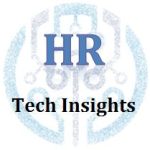The head of people analytics is a new role in HR and from what I’ve seen most organizations are not quite sure what kind of person they need. The tendency is to lean towards someone who has some expertise with big data; or at least as close to that as you can get.
That’s a mistake.
The ideal leader for people analytics is more like a bright management consultant than a mathematician. Their interest is in finding and addressing important opportunities for the business. Analytics is their tool of choice, so yes they’ll have an appreciation for the techniques, but their focus remains on getting business outcomes as quickly and cheaply as possible.
 Here’s what can go wrong if you hire someone mainly for their data analysis skills:
Here’s what can go wrong if you hire someone mainly for their data analysis skills:
- They’ll lead you down the path to making unnecessarily large investments in data and technology infrastructure — and postpone producing actionable results until that is in place.
- They’ll overlook simple solutions in favor of complex ones.
- They’ll spend months on interesting analysis that does not have a prominent business impact.
What you do want in a head of people analytics are the following competencies, all of which are necessary:
- Business focused: You want someone who is primarily motivated by having a business impact and knows the business well-enough that they can do so.
- A creative, curious problem solver: The head of people analytics has a business impact by identifying important issues that the business needs solved and then finding their way to an answer by gathering the best available evidence.
- An appreciation of the scientific method and data analysis. The person has to have enough understanding of science and analysis that they recognize what tools should be used.
 The cart in people analytics are the tools and techniques of analysis; the horse is the business issue. If you hire someone whose main expertise is in the tools, you are putting the cart before the horse. The leader of people analytics is a business person who is given the mandate and the time to look into addressing people issues by delving into the available evidence. They need an appreciation of the tools to do this, but their concern about business impact and general problem solving skills matter more than their expertise with big data.
The cart in people analytics are the tools and techniques of analysis; the horse is the business issue. If you hire someone whose main expertise is in the tools, you are putting the cart before the horse. The leader of people analytics is a business person who is given the mandate and the time to look into addressing people issues by delving into the available evidence. They need an appreciation of the tools to do this, but their concern about business impact and general problem solving skills matter more than their expertise with big data.
Special thanks to our community of practice for these insights. The community is a group of leading organizations that meets monthly to discuss analytics and evidence-based decision making in the real world. If you’re interested in moving down the path towards a more agile approach to people analytics, then email me at dcreelman@creelmanresearch.com or connect to me on LinkedIn.
